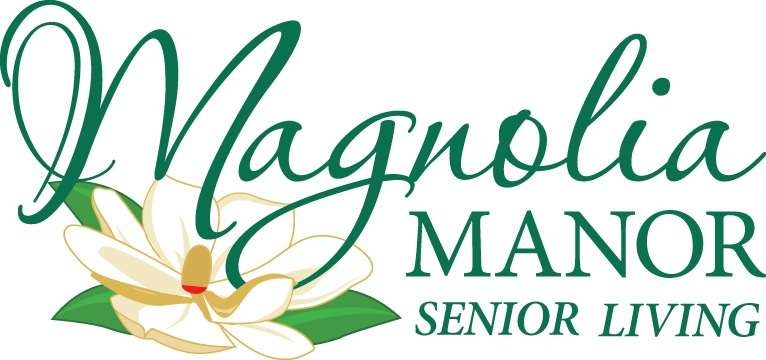Supportive Housing
Don't have time to read this now? Download a PDF version instead.
Supportive Senior Housing in Georgia
“Where can I afford to live?” That’s a question that keeps many seniors and their families awake at night, worrying.
Seniors who are independent are, by definition, able to handle all of life’s necessities on their own. But as we get older, that’s not always so easy. Homeowners, especially, find that heavy-duty yard work and home maintenance are too much for increasing aches and pains, not to mention the expense. And any senior, no matter where they live, can find themselves needing a little help with certain tasks or activities now and then.
Nonetheless, seniors today want to remain independent as long as possible, living in familiar surroundings. The good news is that seniors who are active, in good health, and who want to live independently can choose from a broad spectrum of housing options. There are single-family homes, apartments or condos, mobile home parks, RVs equipped for retirement travel, and many types of senior living or retirement communities. As long as you can afford them, all options are wide open.
 But limited funds can mean very limited options. A 2018 AARP study revealed that while three-quarters of adults age 50 or older would prefer to age in place, “many older adults live in poverty or in very economically insecure situations.” Fortunately, there are programs available to help low-income seniors afford the cost of independent living. One of those programs is called Supportive Housing.
But limited funds can mean very limited options. A 2018 AARP study revealed that while three-quarters of adults age 50 or older would prefer to age in place, “many older adults live in poverty or in very economically insecure situations.” Fortunately, there are programs available to help low-income seniors afford the cost of independent living. One of those programs is called Supportive Housing.
Here at Magnolia Manor, we hear frequently from seniors and their adult children who are very worried because money is tight. Yet, every senior deserves to live in a setting that feels safe and comfortable. Supportive Housing can be a Godsend. It can provide a life-changing transition for seniors who are already living in subsidized housing but are looking for a different type of environment. And it can be a lifeline for seniors who are coming to the frightening realization that their retirement income simply won’t cover the costs of regular independent living.
What Is Supportive Housing?
In the past, few services were available to help seniors trying to cope independently at home, especially those with limited means. If they couldn’t handle things literally on their own – or with help from family or neighbors or fellow church members -- their only recourse was a nursing home. Old-style nursing homes had little to offer except a bed and skilled nursing care, whether residents required comprehensive medical care or just certain assistive services.
As a result, seniors and their families often viewed moving to a nursing home as “waiting for the end” rather than a hoped-for opportunity to continue aging in a more fulfilling environment.
Supportive Housing was created to redress that situation. It allows eligible low-income seniors and others in need to live independently by providing reduced-cost living accommodations and related services. AARP describes supportive housing as “an umbrella term for residential settings that are designed to provide a range of onsite services while people maintain their own private living space. Housing may be temporary or permanent and can offer a wide variety of resources.”
Those resources may include:
- Health services, including home health aides, skilled nursing, or physical, speech, or occupational therapy
- Social services
- Meal deliveries
- Personal care services (housekeeping, laundry, shopping, cooking, etc.)
- Help with activities of daily living (bathing, dressing, eating, mobility, etc.)
.jpg?width=400&height=266&name=doing%20puzzle%20Buena%20Vista%20Singing%20(1340).jpg) While seniors living anywhere in the community can receive these services at home, specially-designated Supportive Housing communities offer rental assistance that makes them a viable option for those who can’t afford to live independently elsewhere.
While seniors living anywhere in the community can receive these services at home, specially-designated Supportive Housing communities offer rental assistance that makes them a viable option for those who can’t afford to live independently elsewhere.
Funding for all this comes from the US Department of Housing and Urban Development (HUD), Section 202 (Supportive Housing for the Elderly Program). The purpose of Section 202 is to increase availability of affordable housing where seniors can live independently but take advantage of supportive services as needed to retain their independence.
The program provides grants to private and non-profit organizations to construct and manage supportive housing and related services. The program also provides rental assistance grants, funds that help cover operations costs so that, in turn, rents can be reduced for tenants. Tenants must meet certain eligibility requirements to live in these apartments.
Supportive Housing at Magnolia Manor
Although most Section 202 properties are complexes designed specifically to house and assist eligible low-income seniors, Magnolia Manor is different. We are a faith-based, non-profit organization with eight senior living communities located throughout Georgia. Our communities welcome all types of seniors, independent as well as those who need advanced care services, though each campus offers a somewhat different mix of care levels.
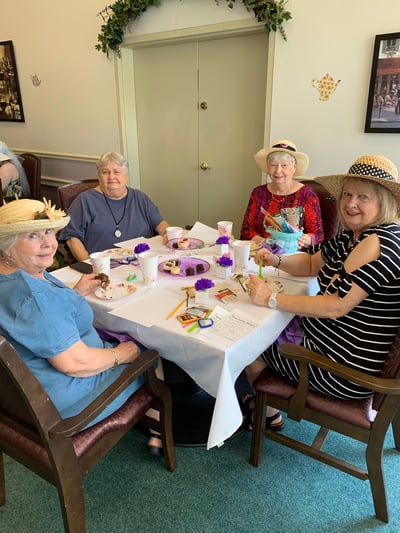 And thanks to a grant from HUD’s Section 202 program, we are able to welcome eligible low-income residents to our independent living communities in Americus and Macon. We are very proud to be a part of this program, as it enables us to provide an outstanding living experience to a wider range of seniors who are healthy and independent.
And thanks to a grant from HUD’s Section 202 program, we are able to welcome eligible low-income residents to our independent living communities in Americus and Macon. We are very proud to be a part of this program, as it enables us to provide an outstanding living experience to a wider range of seniors who are healthy and independent.
At Magnolia Manor, seniors with very limited means can get the benefits of Supportive Housing (if you meet eligibility requirements) without having to move to specially-designated housing. We accept singles and also couples in Supportive Housing. You must be at least 62 years old, the same requirement as all Magnolia Manor residents, and you must meet income and other eligibility requirements.
While Magnolia Manor does not offer onsite health or social services, our independent living residents are welcome to receive such services in their homes.

Everything about Magnolia Manor is Supportive
You might say “supportive housing” defines the essence of our mission at Magnolia Manor. We provide an environment designed to promote a healthy, happy life of leisure – all the goodness of retirement for independent seniors – along with privacy and peace of mind. Our Supportive Housing apartments are one-bedroom units designed for comfortable living. At Macon, for example, apartments include a kitchenette, living room, and bathroom, about 590 square feet total.
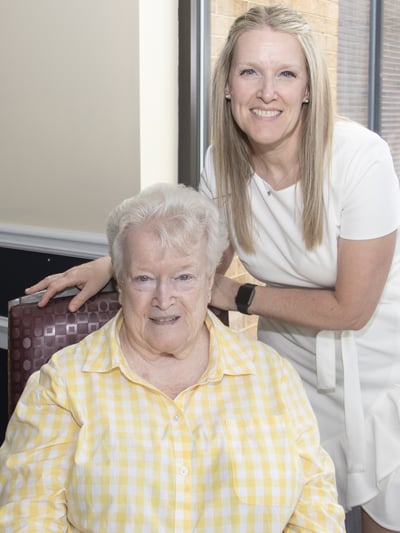 The atmosphere at Magnolia Manor is not only physically appealing, it is emotionally supportive. This is critical for seniors, because living alone can easily lead to feeling isolated, becoming depressed, and developing new or worsening health problems. For those with mobility issues or who can no longer drive (or don’t own a car), isolation is an even bigger risk.
The atmosphere at Magnolia Manor is not only physically appealing, it is emotionally supportive. This is critical for seniors, because living alone can easily lead to feeling isolated, becoming depressed, and developing new or worsening health problems. For those with mobility issues or who can no longer drive (or don’t own a car), isolation is an even bigger risk.
Instead, our residents enjoy:
- Congenial neighbors – fellow seniors who “get” the same things you do but who come from diverse backgrounds, bringing their variety of interests to share with others
- Safe, lovely surroundings
- Quality of life that emphasizes quality and living life to the fullest
- Compassionate staff who treat every resident with dignity and respect – like family
Magnolia Manor’s holistic approach to senior living focuses on comprehensive well-being, so we work to support every single resident in body, mind, and spirit.
What Is It Like to Live in Supportive Housing?
When you’re looking to move to a new residence, the first thing you want to know (aside from cost) is what the place will look like. Size, number of rooms, the view out the window(s), and what is included in the way of appliances, etc. all help you conjure up a mental picture of living in that space. But you also want to know about the environment beyond your own walls.
What will it be like living there? What are the surroundings like? Who lives in the same community, or nearby? Daily life can be very different from one setting to another, no matter where you live or in what type of housing. And a senior living community can be very different from other types of housing available to low-income seniors.
So, if you are considering multiple Supportive Housing options, you will need to carefully investigate what the move will mean for you. While we can’t speak for others, we can give you a great idea of what it’s like to live in a Magnolia Manor community. Note that, even here, the details will differ somewhat depending on whether you choose Supportive Housing at Americus or Macon. But the big picture remains the same because all of our campuses reflect who we are as an organization.
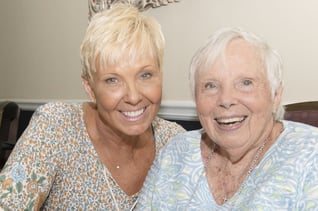 First, a few important points:
First, a few important points:
- Daily decisions are yours. Moving to a senior living community does not mean you give up your independence. Throughout our eight campuses, Magnolia Manor does offer multiple types of accommodation for seniors who need regular assistance, including Assisted Living, Memory Care, Rehabilitation, and Skilled Nursing. But Independent Living is just that – you organize your day however you like and are responsible for your own personal needs.
- You’ll have your own stuff. As a Supportive Housing resident, your home will be a one-bedroom apartment, but it will be yours just as if you lived in an apartment anywhere else. It may be similar to where you live now, or a bit smaller, but you will furnish it with your own belongings.
- There’s plenty to do. Whether or not you have a favorite hobby or interest when you arrive, you will find an impressive array of educational, cultural, entertainment, and wellness activities right at hand. That’s what we call feeding the mind and body. Independent residents can take advantage of everything in and around town as well.
- Faith matters. Spirituality is vitally important to our Magnolia Manor family, since we are a faith-based organization. As a resident you’ll find activities to feed the spirit, from church services to Bible study and pastoral counseling. That said, we genuinely welcome all faiths to join our diverse family.
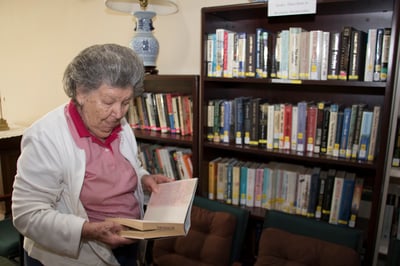 Now that you have the big picture, let’s pay a visit to Ramona, a fictional resident, and tag along as she goes about a typical day in independent living at Magnolia Manor.
Now that you have the big picture, let’s pay a visit to Ramona, a fictional resident, and tag along as she goes about a typical day in independent living at Magnolia Manor.
- 7:00 am: Ramona is getting up a bit later than usual today, because she stayed up late reading a book that turned out to be a real page-turner.
- 8:30 am: Feeling primed after the first cup or two of coffee, Ramona is fixing breakfast. Today she’s having oatmeal with dried cranberries, but some days she splurges on bacon and eggs.
- 10 am: Ramona’s neighbor Margie knocks on her door, just as planned. They have a full day ahead. First, they hop into Margie’s car for a shopping trip into town, where Margie can pick up the perfect birthday present for her grandson. Ramona has no car, but when she wants to head into town alone to shop for groceries, etc., she catches the Magnolia Manor free shuttle.
- Noon: The ladies are back on campus and heading to the dining room for a bite of lunch. Yum.
- 2:00 pm: Relaxed after lunch and a short walk around the grounds, Ramona and Margie wind up their stroll at the beauty shop. Ramona is getting a haircut, while Margie indulges in a mani-pedi.
- 4:30 pm: Feeling tired but looking good, the ladies head off to their own apartments. Ramona stops to check in on her next-door neighbor, Steve, who has been feeling a little under the weather lately. They talk about the book she is reading, and she promises to loan it to him as soon as she finishes.
- 5:30 pm: Ramona has replaced her “going to town” outfit with comfy sweats and socks. She’s made some tea and – you guessed it – she’s back in her favorite chair reading. Later, she’ll make dinner – maybe just some leftovers, since she had a big lunch.
- 10:00 pm: Yawning, Ramona realizes it’s time for bed. She needs to rise earlier tomorrow, because she has a hot date with the water aerobics class, followed by a rendezvous with her quilting group and an afternoon video meet-up with her daughter and granddaughter. At some point, she’ll need to squeeze in a load of laundry. Thankfully, the laundry room is right in her building.
What If I Need More Assistance?
Most seniors eventually need help with something, if not several things. Getting the help you need allows you to remain independent rather than moving to assisted living, which can be quite costly.
We noted earlier that although Magnolia Manor does not provide onsite health or social services for independent living residents, your apartment is your home. That means you can receive the same range of in-home services available to seniors who live in Supportive Housing complexes or private homes. The fact that so many types of services are now available is testament to the power of the “aging in place” movement.
.jpg?width=400&height=266&name=2019%20Mattie%20Marshall%20Fathers%20Day%20(578).jpg) You can get help with household tasks such as housekeeping and cooking. You can get help with activities of daily living (ADLs), which include:
You can get help with household tasks such as housekeeping and cooking. You can get help with activities of daily living (ADLs), which include:
- Dressing
- Eating
- Hygiene and grooming
- Bathing, toileting, and incontinence
- Laundry
- Mobility
- Using the phone
- Shopping
Home health aides and skilled nurses can visit to help with physical, speech, or occupational therapy, help with wound care if you’ve been injured or had a medical procedure, check your blood pressure, make sure you’re taking your medications properly, and so on.
Maybe you want help with meals. Your Supportive Housing apartment comes with a kitchenette, but if you no longer want to prepare all your meals yourself and you don’t want to purchase a Magnolia Manor meal plan, a private caregiver can come to prepare your meals for you. As a low-income senior, you are also eligible for Meals on Wheels delivery.
Friends and family members can drop by to help, too, but we know you’d rather have them come by just for a visit. We also know that seniors are very poor at asking for help from those closest to them. You think it’s an imposition, even though they think it’s a great way to support you. With outside help you can skip the guilt and relax.
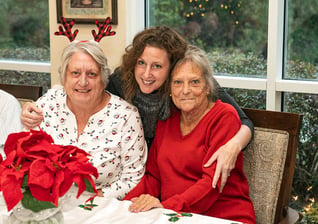 What about cost?
What about cost?
Some organizations provide volunteers to help seniors with non-medical at-home tasks. Your church probably has a group of willing volunteers as well. However, here in Georgia, there are multiple options for seniors to access services in their homes as well as at community-based resources.
If you qualify for Medicaid (a virtual certainty if you are eligible for Supportive Housing), you can receive financial assistance for social, health, and support services through the Georgia Community Care Services Program (CCSP). This Medicaid Waiver program covers all the services listed above plus more. Medicaid pays for these services because it is more cost-effective than paying for a senior to receive the same services in a nursing home.
The state’s Area Agencies on Aging administer the program and handle applications for CCSP, and they offer many other resources for low-income seniors. You can find your local agency here.
Medicare provides health insurance coverage but does not cover in-home assistance. However, if you have a Medicare Advantage plan (offered by several insurance providers at no extra charge to the insured), you may have coverage for personal care services such as those listed earlier. It definitely pays to check.
There may also be other resources available to help you pay for “assisted living” services. You can use this Resource Locator Tool to find options that apply to you in your geographical area.
What Does Supportive Housing Cost?
Senior independent living communities can be vastly different in terms of setting and amenities, ranging from truly luxurious to much simpler. So residential costs vary tremendously, too. Most seniors are concerned about affordability, and when your income is very low every dollar counts. Still, you hope to find a place you will love.
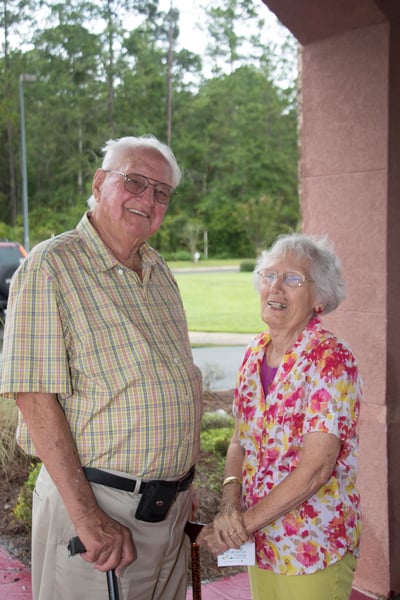 What you’ll pay for Supportive Housing also varies from one setting to the next, but cost is always based on your ability to pay. You must meet the eligibility requirements, of course. Then your share of the rent will be calculated based on your income, but it will never exceed 30% of your monthly household adjusted income.
What you’ll pay for Supportive Housing also varies from one setting to the next, but cost is always based on your ability to pay. You must meet the eligibility requirements, of course. Then your share of the rent will be calculated based on your income, but it will never exceed 30% of your monthly household adjusted income.
At Magnolia Manor, our Supportive Housing allows residents to afford more. You get a monthly payment that fits, plus the same wealth of amenities and opportunities available to all our community residents. You can use our Cost Calculator to see what you will pay, what that covers, and how it compares to what you’re paying now. It works like this:
- Click to choose either the Americus or Macon campus. We’ll use Americus for this example.
- Click to choose Independent Living
- You will see several housing types. Garden Apartments sound lovely, we’ll pick that.
Good choice! The calculator confirms that the Garden Apartments are available to Supportive Housing residents. Now the calculator displays a chart you can fill in to compare specific costs as well as your total monthly expense. You’ll notice, for instance, that meals are not included for our Garden Apartment residents. However, we do offer a meal plan you may wish to pay for rather than purchasing groceries and cooking on your own. (Our communities are well-known for the great food.)
At Magnolia Manor, we charge by the month without any long-term contract required. We do everything we can to keep costs affordable for all our residents, but from time to time we do have to raise fees. As a Supportive Housing resident, your cost will never exceed the limits established by the Georgia Section 8 program.
Paying For Supportive Housing
Seniors who live independently are responsible for all of their costs of living, from rent or a mortgage payment to utilities, food, clothing, transportation, and sundries. That’s true in a senior living community as well as any other neighborhood. There are multiple resources seniors might potentially call upon to cover these expenses.
Our free guide, How to Make a Plan to Afford Senior Living, explains these resources in detail, but for most seniors they come down to:
- Pension or Social Security payments
- Withdrawals from savings or annuities
- Retirement accounts such as IRAs or 401(k) plans
.jpg?width=400&height=266&name=Snow%20Cones%20Americus%20(8713).jpg) Seniors who qualify for Supportive Housing do not have savings or retirement funds. They are usually on a small fixed income from Social Security and possibly Supplemental Security Income (SSI). If you think you might be eligible for other benefits, you can go to BenefitsCheckUp and enter your ZIP code. This is a free service offered by the National Council on Aging, and it lists a variety of possible benefits, not just housing assistance. It is always worth checking!
Seniors who qualify for Supportive Housing do not have savings or retirement funds. They are usually on a small fixed income from Social Security and possibly Supplemental Security Income (SSI). If you think you might be eligible for other benefits, you can go to BenefitsCheckUp and enter your ZIP code. This is a free service offered by the National Council on Aging, and it lists a variety of possible benefits, not just housing assistance. It is always worth checking!
Supportive Housing at Magnolia Manor is available only to those seniors who qualify for Georgia’s Housing Choice Voucher Program, commonly referred to as Section 8 rent assistance. This program is funded by the US Department of Housing and Urban Development (HUD) and administered by each state. Here in Georgia, local public housing authorities manage the program.
You must be a US citizen or be an eligible immigrant, have a clean criminal record, and pass a screening process. However, eligibility depends primarily on your income, compared to the median income in your part of the state, called a metro statistical area (MSA). You may be classified as:
- Low-income
- Very low-income
- Extremely low-income
You will always have to pay your share, but you won’t have to worry about your own funds running out, because the income you receive from disability, SSI or Social Security will continue as long as you live.
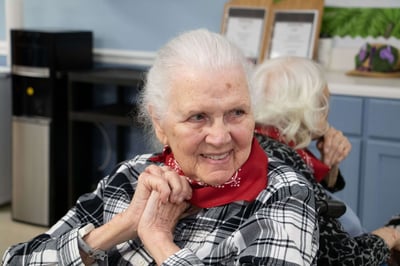 Medicare and Medicaid Do Not Cover Housing
Medicare and Medicaid Do Not Cover Housing
Neither Medicare nor Medicaid will pay for room and board in an independent senior living community. Medicare provides health insurance to seniors regardless where you live. Medicaid helps pay for a variety of supportive services delivered to seniors in their home, including communities such as Magnolia Manor. Exactly what Medicaid covers, and to what extent, varies from state to state as we noted earlier.
You can learn more about the Georgia Section 8 assistance application process through your local public health district. If you or your elder parent is not yet approved for Section 8, that should be your first priority, as there is usually a waiting list.
How to Choose Supportive Housing
We’ve talked a lot already about how Supportive Housing can help low-income seniors live happy, healthy, fully independent lives without sacrificing the help they might need to remain independent. But no matter what type of housing you’re searching for, the details can vary tremendously. You want – and deserve – accommodations and an environment that meet your needs safely and comfortably.
But why not aspire to more?
If you’re considering a move, now is the time to consider your preferences as well as your needs. Low income doesn’t mean you should settle for low quality or too-limited options, especially since staying active and mentally engaged are keys to good health and well-being as you age. Each person is different, so what matters most to you?
For example, where do you want to live? If long-time friends, adult children and grandchildren are nearby, you probably want to stay local. If loved ones are too far for inexpensive travel, maybe a move closer to them would be ideal. Time passes so quickly!
.jpg?width=400&height=266&name=2019%20Mattie%20Marshall%20Fathers%20Day%20(613).jpg) What kind of surroundings would you like? All of our Magnolia Manor campuses offer beautifully and well-maintained grounds as well as a panoply of activities and amenities. Each is different, though, so you’ll find a different setting at Macon as opposed to Americus, the two campuses where we offer independent Supportive Housing.
What kind of surroundings would you like? All of our Magnolia Manor campuses offer beautifully and well-maintained grounds as well as a panoply of activities and amenities. Each is different, though, so you’ll find a different setting at Macon as opposed to Americus, the two campuses where we offer independent Supportive Housing.
As you investigate your options, you’ll want to ask some specific questions, such as:
- Exactly what is provided in the monthly cost? (You will have to pay for anything else that you may want or need.)
- What is the policy regarding visiting children?
- What transportation is available? Is it free?
- What kind of activities or facilities are included for residents?
- How much do residents interact with the wider community?
- What are the security and emergency procedures?
At Magnolia Manor, Supportive Housing for independent seniors at Americus or Macon offers more than an affordable roof over your head. Beyond the basics of safety and comfort, you can live an enriching, fulfilling, and carefree life.
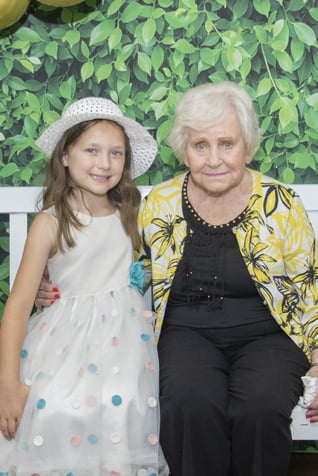 Come See Us to See for Yourself
Come See Us to See for Yourself
The only way to know for sure whether an independent living option is right for you is to see it in person. Phone calls and reading material cannot give you the flavor of the place, or tell you what your future neighbors are like, or allow you to meet the staff. So, normally we would invite you for a tour. And, once pandemic-inspired restrictions are lifted, we will do just that. We encourage seniors and adult children to join us.
Here are some tips for when you do visit:
- Look around, to get a feel for the overall ambiance. Is it noisy and chaotic, or pleasant and peaceful?
- Look at an apartment like the one you would be living in. Can you picture yourself here?
- Do residents and staff look happy? Do they smile and say hi?
- Meet some of them. Ask residents what they like best and if there is something they don’t like. Are care-giving staff warm and friendly as well as competent?
- Check out the facilities – wellness center, indoor and outdoor activity areas, etc.
- Is there a chapel or onsite chaplain? Not all senior independent living communities have these things, but as a faith-based organization Magnolia Manor’s campuses provide spiritual support as a key component of daily life for those who are interested.
Don’t Wait
Deciding to make a move requires a lot of decision-making, and it can be stressful. Advance planning relieves pressure, so doing your research now will help you make better decisions and feel confident when it is time to take action. Advance planning is also important because the vast majority of Section 202 Supportive Housing properties have waiting lists. In fact, you may well find a waiting list just to apply for eligibility.
Fortunately, we can tell you that we usually do not have a waiting list for Supportive Housing at Magnolia Manor, though that could change of course. You can make the decision to join us in Macon or Americus and become our newest resident sooner than you think. Smart move!
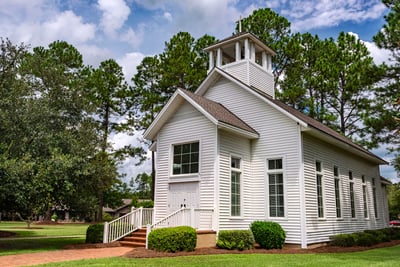
The key to aging in place for every senior is to stay active and engaged, mentally as well as physically. You may have less when it comes to income, but choosing Supportive Housing in a broad-based senior living community can give you so much.
Magnolia Manor independent residents live in surroundings that capture Georgia’s natural beauty. They have time and private space for quiet, alone moments. There’s interesting friends to reminisce with or share new experiences with. Residents can also enjoy exceptional, devoted staff who consider every person part of our family.
Why settle for less, when you can choose an environment that is rich with opportunities to expand your mind, strengthen your body, and lift your spirit.
Conclusion
As you’re considering Supportive Housing for yourself or your beloved Mom or Dad, our team at Magnolia Manor is always happy to answer questions and make suggestions. We know you want to make the best possible decision, and it’s not easy. There is so much to think about. So let’s talk.
Under normal circumstances – before COVID-19 – we would heartily encourage you to schedule a tour. We mentioned earlier how much we love showing off our facilities in person. For now, though, we’ll have to wait on that. But we’re still available by phone, so we invite you to give us a call at 855-540-LIFE (5433). Or drop us an email.
We look forward to meeting you, at least electronically. We’re excited to share with you how Magnolia Manor opens doors for seniors, and we’re equally excited to learn how you or your Mom or Dad will add to our family. After all, every new resident adds to the diversity of our communities.
